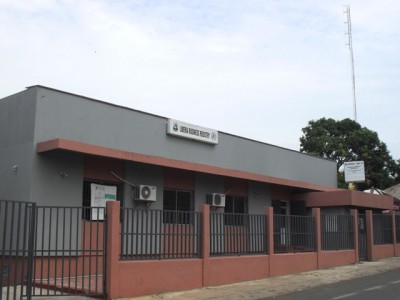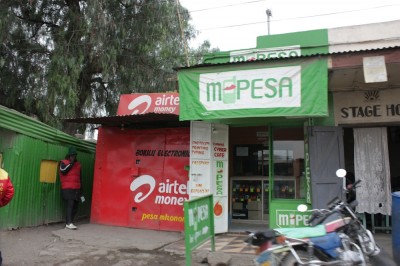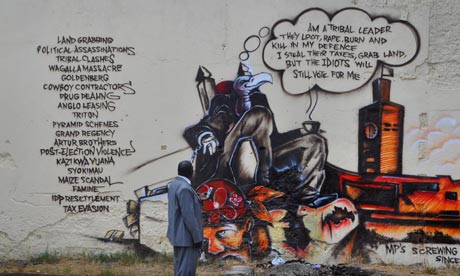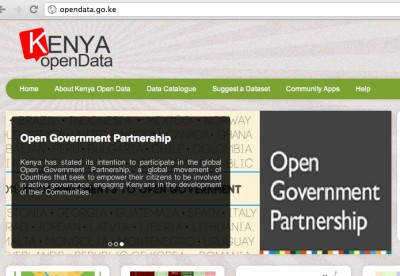Archive for the ‘Government 2.0’ Category
Innovating for the People: How Africa is using Technology for Better Governance.
This post is the forth and last article in a four-part series on Africa: The Present Frontier.
On his first day in office, US President Barrack Obama signed the Memorandum on Transparency and Open Government start the process that led to the Data.gov we know today. Within 3 years, other governments had followed suit around the world with many attempting to do it and others getting past the hurdles to finally launch. The first one in Africa to start the process and deploy an open data portal was Kenya. Other countries are expected to follow suit in the coming months and years.

The Liberia Business Registry which provides an online platform for business registration. Image source: http://www.lbr.gov.lr/
The story of governance in Africa though punctuated by war, coups de etat and not-so-democratic elections is also full of stories of democratic progress and innovation. Technology is playing a role on the demand side of governance with citizens taking to technology platforms to amplify their opinions and demand better services from governments. It’s playing a big role on the supply side as well with governments adopting e-government and making progress along the path to open government and turning Africa into an attractive place to live in and do business.
The IFC in its Doing Business report for 2012 found that every single East African country had made at least one reform aimed at making them an attractive investment destination. Areas such as electronic submission of documents for businesses establishing a presence are important for governments in the East African Community. Sadly, despite the reforms, the 2012 Doing Business ranking show only 2 out of 5 of the EAC states improved their rankings with all the others dropping between 2 and 4 places from 2011. Rwanda remains the 3rd best country to do business on the continent after Mauritius and South Africa at its current 45th position in the rankings. Kenya, at 109, is ranked better than Nigeria, Brazil and India.
The improvements in the EAC have resulted in stronger legal institutions but maintained expensive regulatory processes. However, as these governments implement e-government initiatives and make progress along their respective roadmaps, the costs for businesses and individuals where interactions with government are concerned will reduce and play a role in improving the business environment in the region. This is key to creating employment, reducing poverty, improving the quality of life and growing a country’s GDP. Here are some examples of how countries in the region are using technology to serve citizens and protect the gains made in opening up the democratic space and improving the business environment.
- Kenya Revenue Authority’s (KRA) Portal. Interacting the revenue authority almost always meant a great deal of standing in line and loss of valuable man-hours lost. This created an environment for intermediaries and corruption to thrive resulting in the loss of millions of dollars in revenue every year. The authority implemented a series of measures to make customs, excise and value-added-tax processes convenient, less costly and more water tight through an online platform resulting in a level playing field for business and less citizens standing in line for days to get things done. It also put those pesky ‘brokers’ hanging around government offices offering to ‘help’ out of business.
- Tanzania Revenue Authority e-Filing and mPayments. In a move that created a new precedent in Government to Citizen (G2C) services in sub-Sahara Africa, the Tanzania tax authority implemented a mobile payments tax system which makes it unnecessary for citizens to visit their offices to pay taxes.
- Rwanda Mobile-enabled Driving license applications. In an effort to reduce the amount of time it takes to apply for a driving license in Rwanda, the government introduced a mobile-enabled service that allows citizens to send a text message to the platform and receive a registration number, the first step in the process, cutting the process from 4 months to 45 days.
- Liberia’s Online Company Registry. Liberia’s company registry allows citizens to register a business without having to make trips to government offices usually a standard practice with this bureacractic process.
While some have already done so, a number of countries in sub-Sahara Africa are on the path to introducing electronic lands registries, integrated financial management systems and electronic business registration in an effort to improve service delivery in their government to government (G2G) interactions and G2C / G2B services.
The old Africa is almost no more. There’s a new Africa emerging. One where stronger institutions exist, better legislation, transparency and citizen participation in governance is the norm. The new Africa is here.
Where Opportunities Lie in the African Mobile Space
Africa straddles two realities. One is underpinned by the belief that Africa is the next frontier and measures the continent’s progress against an expected trajectory and momentum modeled on that which developed economies have followed in the past. As the continent leapfrogged wireline technology to adopt mobile at an astoundingly unexpected rate over the first 5 years of this millenium, it proved a point to the rest of the world. Africa is the present frontier. This is the other reality where the continent has brought to market a number of ‘firsts’. Airtel’s (Celtel at the time) borderless mobile network that features no roaming fees, the envy of European consumers. MPesa, Vodacom’s mobile money platform that has been very successful in Kenya and now growing in Tanzania and other countries.
According to the GSM Association, there are an estimated 649 million subscribers in Africa and an estimated 86 million being added to this number by the end of 2012 making Africa the world’s second largest mobile market and the fastest growing in the world. Even then, there’s still an estimated $36 billion of untapped revenue from growth in the 25 largest mobile markets on the continent. Unlike in developed nations, 96% of all subscriptions are pre-paid with voice dominating the revenue matrix. In some markets, data is growing considerably fast contributing significant revenues to the operators’ ARPU. Safaricom, for instance, generated just over $1.1b in revenue with voice calls contributing 67% a 1.2% drop on the previous year. Mobile and fixed data on the other hand jumped 81% compared to the previous year as subscribers used their modems and phones more to access the Internet. More Africans are buying mobile devices resulting in more endpoints added to a highly resilient, ubiquitous and geo-aware distribution platform for content and services.
The rise of mobile in Africa has brought with it obvious opportunities as well as a new class of opportunities that probably didn’t quite exist before. Opportunities for non-profits to reach more people at lower costs, governments to provide services more effectively and across larger geographies, for business to reach more customers and scale at lower cost. Mobile is making it possible for small and medium sized enterprises to compete with big business in ways they couldn’t just a few short years ago. Mobile isn’t just changing the operating landscape for consumer/citizen facing organizations, it’s changing the game. The trifecta of fast growing extensive data networks, cheap data-enabled handsets and a fast growing mobile money ecosystem is setting the stage for probably the greatest disruptions to the landscape yet. We are observing the emergence of fascinating opportunities in Africa, many which are providing new growth areas and could potentially power GDP growth further over the coming years. Here are a few;
- OpenGov and mGov – Govenments can now potentially reach more citizens than ever before with services that don’t require physical access to government offices. For instance, mobile allows governments to provide birth registration, community policing and even payment of taxes (Tanzania allows the use of MPesa for tax payments) at very low cost. It is also possible to now involve citizens in their own governance and scale programs further faster and cheaper than ever before. These also presents new opportunities for businesses that can provide governments with the tools they need to get the job done. Socrata and Knoema, for instance, provide visualization and analysis platforms for the Kenya government’s open data initiative and the African Development Bank Open Data for Africa portals respectively. However, there are still opportunities for developers who can build applications that help communicate public data in a way that citizens can easily understand on mobile phones.
- mHealth & mEducation – There are, as far as I can tell, no commercial successes in Africa in the mHealth and mEducation sub-sectors. However, programs like Dr. Math running on MxIt in South Africa and MOTECH currently in Ghana demonstrate the potential that lies untapped in the mobile platform as a channel. One of the ventures to watch is MedAfrica which is using Kenya’s Open Data in addition to other datasets provided by industry stakeholders to provide a commercial mHealth service.
- Financial intermediation – In this space lies the well known mobile-to-mobile money transfer services that emerged on the continent 5 years ago such as MPesa and Zap (now Airtel Money). Since then, the high and rapid penetration of mobile subscriptions and mobile money subscriptions in East Africa created new opportunities for financial services intermediation. Mobile-to-bank / bank-to-mobile services as well as mobile-to-web services that now make ecommerce via mobile money a reality have began to take hold. South Africa’s Fundamo has been present in the mobile money space since 2002 and was recently acquired by Visa International. Kenyan firm Cellulant, now serving institutions in at least 8 countries in sub-Sahara Africa is powering mobile banking services and content distribution via mobile phone for institutions such as Barclays Bank. Pesapal, launched in
20102009 as the first payment gateway that made ecommerce via mobile money a reality. It now also provides utility and bill payments via mobile money and debit/credit cards. Since its launch, other firms have emerged in that space including Bilmobile in Egypt, iPay in Kenya and many more. This continues to be a growth area across the region and one where new opportunities will continue to emerge. - Business platforms – Small and medium sized businesses adopted mobile money fairly early. However, they failed to integrate mobile with business infrastructure. That is changing now with players like VirtualCity providing supply chain platforms that make sales and distribution management solutions via feature phones and smart phones possible. Their DistributR solution is now available as SaaS with the potential to scale rapidly across the region. ERP maker SAP has also recently announced the launch of it’s mobile solution that will provide businesses on their BusinessOne platform with mobile extension of their ERP services. In the past, achieving this level of enterprise mobility required huge investments in infrastructure and software. Now mobile-powered business solutions can be rolled out by small business within days of the decision to acquire. Enterprise mobility is probably the least exploited opportunity by local developers and one which international firms with the technology and understanding of the African market could seize for growth.
Bringing Social Objects to Citizen Empowerment
Sparking conversations among citizens is the first step to creating change.
Kenyans woke up to a pleasant surprise one March morning. Graffiti with a political message sprayed on walls in Nairobi’s central business district. And not the terrible kind that is an eye-sore with good intentions. This was “stop-and-stare” graffiti that not only made news in Kenya but overseas as well.
Tweet
Corporate Big Data Should Team Up With Public Open Data
In the early days of the Obama administration, the idea of open data was transitioned from lofty ideal to a reality pushing huge amounts of government-held data onto public portals. What started in the US, however, became a global process. Many governments have since committed themselves to provide data to their citizens through similar portals and to abide by the principles of open government.
This coming June, Kenya will celebrate one year of open data and a portal that has grown to over 220 datasets and a total of 500 data elements (datasets, documents, charts etc). A number of interesting mobile and web apps have been created that utilize the data such as MedAfrica. Although there have been signs of some cool apps, the number of apps I expected one year on haven’t quite materialized. However, 12 months is a short time and the next couple of years could very well see the rise of novel applications and highly innovative ways of communicating public data to citizens or using it to add value to commercial apps.
Now that the government is publishing data online and will continue to do so as legislation is enacted to further reinforce this, what’s next? I say MORE DATA. Not just government data. It’s time for corporate big data to join the party. The private sector has a wealth of data gathered everyday from citizens around the country. The level of intelligence contained in corporate data is so vast, fresh and detailed I’m certain the staff at the national bureau of statistics salivate at the thought of getting their hands on it. So do local small businesses and start-ups. Although the data held by a single corporate entity on its customers may be detailed and extremely valuable, it becomes even more valuable when taken together with data from other corporate entities. Taken together with public open data, this data is priceless.
Corporate open data could have immense impact on consumer/citizen facing organizations in both for-profit and non-profit sectors. Here are some possibilities that come to mind
- Banking data e.g. insights into average deposit size by county, number of business accounts, penetration of banking services by geographic location and population (percentage of population with bank accounts).
- Consumer goods sales e.g data on consumption of goods by location, trends, average price of most popular product type.
- Telecommunications e.g. Airtime sales by location, average size of airtime purchase, average call length by location, average number of text messages per person by location, number of subscribers accessing the internet via mobile or via other devices etc
- Disease prevalence e.g. data from private healthcare facilities could provide additional information on number of cases diagnosed by disease, location and trends beyond the diseases that are most commonly observed at public facilities.
In an age where information is king, helping communities empower themselves and turn their fortunes around requires access to the right information. Information that allows them to understand why their counties attract low investment, or whether they have the infrastructure to leverage for economic development, or what their political leaders can do to improve their quality of life. The answers to these and many other questions lie not just in government data but in corporate data as well.
Empowering citizens to become more active in their own governance is a key principle of open government and one which open data reinforces well. Empowered citizens make empowered customers and (I’m pretty certain) makes for good business somehow. It is possible that corporate social responsibility on this side of the industrial age may include providing data to the public that could help them change their world. Isn’t that a possibility East African businesses should consider investing in just as their governments are doing?


